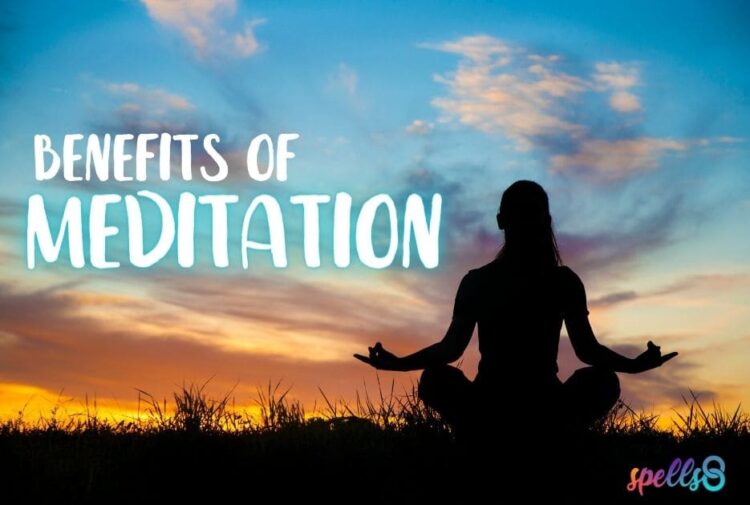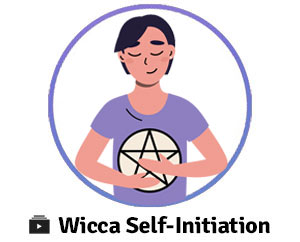The practice of meditation has been used for thousands of years to foster spiritual connection, good health, and mindfulness. It is believed that the practice of meditation has roots in Eastern religion and philosophy, but many different styles of mindfulness have been practiced all over the world in many different cultures and religions. It is a simple and effective way to stay connected to yourself and the world around you.
Meditation has many benefits that range from spiritual to physical. In this post, we are going to discuss what meditation is, how you may benefit from meditation, and give you a simple practice you can use to start meditating! Keep reading to learn more, and don’t forget to take the fun quiz at the bottom to help you find the meditation that’s right for you!
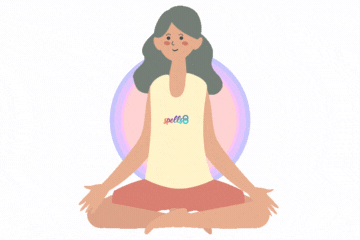
What is Meditation?
Put very simply, meditation is the art of stillness. There are many different definitions of meditation in the dictionary. The two most common are “to engage in mental exercise (such as concentration on one’s breathing or repetition of a mantra) for the purpose of reaching a heightened level of spiritual awareness” and “to focus one’s thoughts on: reflect on or ponder over“. Both of these definitions align with meditation as we are discussing here.
The purpose of meditating is not to quiet the mind and have no thoughts. That is nearly impossible, and it is even more difficult if you have ADHD or another mental health concern. Instead, we see meditation as a way to focus on the present moment or a specific visualization. Most commonly, meditation starts with focusing on the breath. Our breath is our life force. This is how our bodies function and it is an essential part of living. When we become mindful of our breath, we become mindful of our very existence.
See also: Meditation – Not just ‘Sit Down and Shut Up’
Mundane Benefits of Meditation
Over the last several years, many studies have been done that show meditation has both physical and mental benefits. According to the National Institute of Health’s National Center for Complementary and Integrative Medicine, meditation may be helpful with the following:
- Relieving symptoms of stress, anxiety, and depression
- Lowering high blood pressure
- Helping with pain management
- Improving insomnia and sleep quality
- Symptoms of addiction and substance abuse
- Symptoms of Post-Traumatic Stress Disorder (PTSD)
- Psychological and physical symptoms of cancer and cancer treatment
- Improving weight control and eating behavior
- Symptoms of Attention-Deficit Hyperactivity Disorder (ADHD)
It is important to remember that meditation is a practice and should benefit you in some way. If you are struggling with it or it is making things worse, please stop meditating and seek out the help of a professional in the necessary field. For example, if meditation makes your ADHD worse you may want to ask your therapist or mental health professional for guidance.
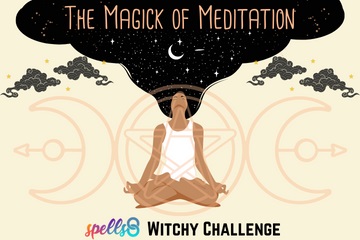
Spiritual Benefits of Meditation
Just as meditation can help with physical and mundane concerns, meditation can also help us spiritually. This is not an extensive list and you may experience benefits different from the ones found here. As an individual, your reasons for meditating may vary as well. Meditation for spiritual reasons is highly subjective and will depend on your reasons, methods, and current practice. In general, some spiritual benefits you can expect may include the following:
- increased clarity in your life purpose
- a balanced sense of existence
- inner peace and stillness
- better connection to your intuition
- connection with the Divine in whatever way you see it
- increased focus and concentration when raising energy
- increased energy healing and connection
- connection with the outer world and signs you may receive

Different Types of Meditation
Just as there are different types of spells and rituals, there are also different types and methods of meditating. Each one has a different focus and purpose, and you may find you gravitate to one more than the other. There is no wrong way to use these methods, either. This is also just a glimpse into the many different methods of meditation that exist. Choose the method that works best for you and allows you to cultivate the spiritual connections you hope to achieve.
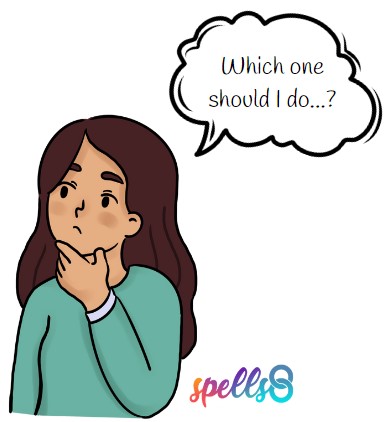
Mindfulness Meditation
Mindfulness is the practice of living in the moment and observing what is happening as it happens. This practice originates from Buddhist teachers and is one of the most popular and researched forms of meditation in the West. Mindfulness meditation involves noticing your thoughts as they happen, without judgment. You acknowledge the presence of the thought, observe it and notice any patterns, and then allow it to pass.
Mantra Meditation
A mantra is a word, phrase, or sound that is repeated over and over again. The most common one to hear in meditation is “Om”. Mantra meditation is used to help clear the mind and focus on a single phrase or goal. This type of meditation can be helpful for people that find silence uncomfortable and difficult to deal with.
Movement Meditation
Did you know that you do not have to sit still to meditate? Many people find sitting still difficult, and meditation while sitting still can be even more difficult! If this is you, practice movement meditation. This may include exercises such as yoga or tai chi, but any gentle movement that allows you to focus on your body will work. This type of meditation is great for anyone that finds it difficult to sit still or that wants to cultivate body awareness.

Visualization Meditation
As the name implies, visualization meditation involves picturing different scenes in your mind to promote a feeling of peace, relaxation, or focus. The scenes pictured in visualization meditation will vary depending on the person. There is no one way to practice visualization meditation and you should use a visualization that works best for you. For example, if you find yourself at home in the forest but afraid at the beach, using a beach visualization for relaxation is not going to help you at all!
Guided Meditation
Guided meditations are a good place to start if you have no experience with meditation or you struggle to maintain your focus. Guided meditation is usually an audio-based experience that involves prompts to help you visualize or maintain focus. These meditations can involve many different types of meditation such as visualization, movement, and mindfulness. If you are a beginner to meditation, guided meditation may be the perfect introduction for you!
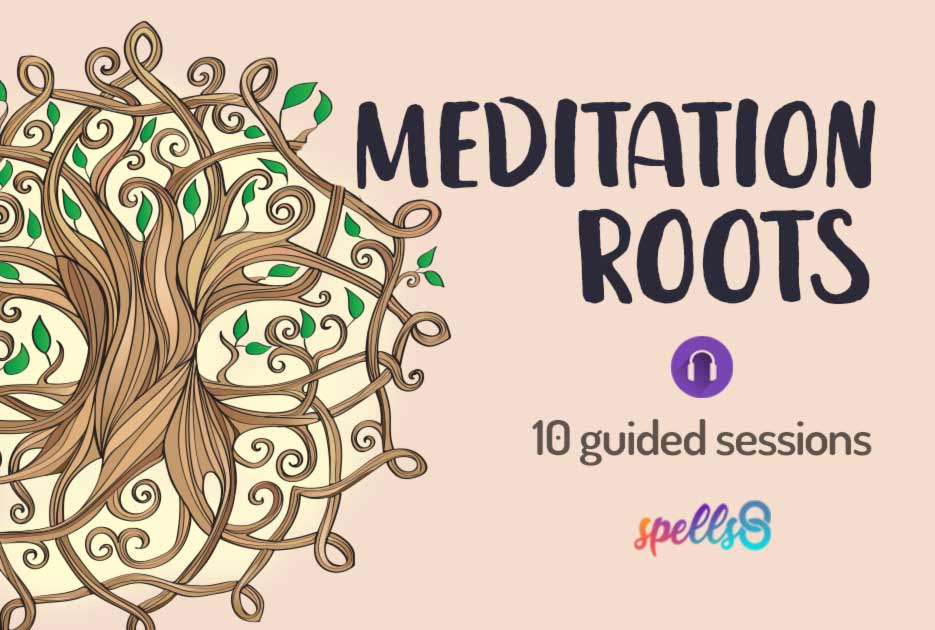
Simple Meditation Practice
Meditation can be done almost anywhere and does not require any special tools or environment. Here is a simple guide to help you get started with your meditation practice today!
- Find a quiet, comfortable place to sit or lie down. The point is to be comfortable, so sit or lie down in a way that makes sense for you. This can be on a solid chair, a yoga mat, your bed, or a pillow.
- Close your eyes and take a few deep breaths. Inhale slowly and deeply through your nose, then exhale through your mouth.
- Focus your attention on your breath. Notice the sensation of the breath moving in and out of your body. If your mind wanders, gently bring it back to your breath.
- Continue to focus on your breath for a few minutes. Start with just a few minutes and gradually work your way up to longer periods of time.
- When you are ready to end your meditation, take a few deep breaths and slowly open your eyes.
Remember, meditation is a practice and will take time to get better or find what works for you. Do not be discouraged if all you can manage at first is a minute of mindful breathing. Eventually, with practice, you can work your way up to several minutes of mindfulness and continue to enjoy the benefits of your meditation practice!
Take the Quiz!
Choosing the right guided meditation for you can be a difficult task if you are not sure what you need right now. Take this short quiz and get a guided meditation suggestion based on your answers!

